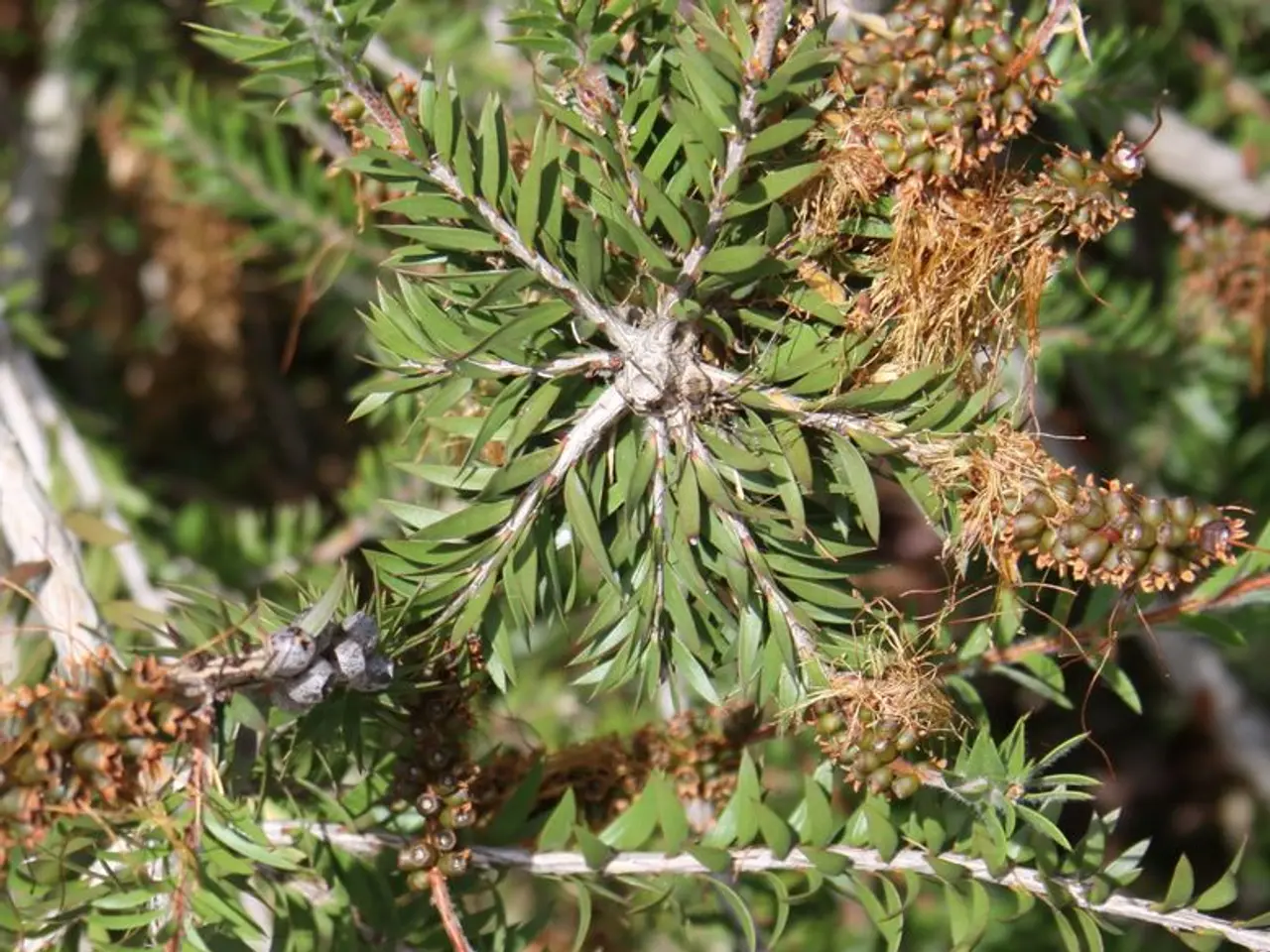Simple Home Fruiting: A Novice's Guide to the 5 Most Growable Fruit Trees
In the world of home gardening, growing fruit trees can be a rewarding and delicious endeavour. For beginners, we recommend starting with figs, apples, Meyer lemons, peaches, and plums. These trees are known for their low-maintenance nature and adaptability to various home garden settings [2][3].
Peach trees, for instance, can start producing fruit in as little as 2-3 years, making them a quick reward for your efforts [1]. Meyer lemon trees, on the other hand, are easy to grow and produce fruit faster than many other citrus trees [1]. They are also suitable for containers and can be grown indoors, making them ideal for small spaces [1].
Apples are another great choice, particularly dwarf or semi-dwarf varieties. These modern trees are bred for home gardens, take up less space, and start producing fruit faster than standard-sized trees [2]. Fresh figs are expensive in stores, making growing your own a sweet deal. Fig trees are drought-tolerant once established and aren't too picky about soil [1].
Plums are adaptable and cold-hardy, with many varieties being self-fertile [1]. This means you don't necessarily need another plum tree for cross-pollination. Some peach tree varieties are also self-pollinating [1].
For optimal growth, it's essential to provide your fruit trees with full sun and well-draining soil. Peach trees, for example, need full sun, while plums thrive in a sunny spot with good air circulation [1]. The Meyer lemon tree requires 8-12 hours of sunlight daily [1], and fig trees should be planted in full sun and watered regularly during the first growing season [1].
Regular fertilization with citrus-specific fertilizer is necessary for the Meyer lemon tree [1], and pruning annually encourages healthy growth in apple trees [1]. Thin fruit in early summer to prevent overloading branches on peach trees [1].
When it comes to apple tree varieties, planting at least two different ones for cross-pollination is recommended [1]. For disease-resistant options, consider 'Liberty' or 'Enterprise' [1].
In summary, figs, apples, Meyer lemons, peaches, and plums are the easiest and most versatile fruit trees for beginners. They are adaptable to many climates and space constraints, making them excellent choices for home growing [2][3][4][1]. Happy gardening!
References: [1] The Spruce, (2021) The Best Fruit Trees for Beginners. [Online] Available at: https://www.thespruce.com/best-fruit-trees-for-beginners-3196518 [2] Gardening Know How, (2021) 5 Easy Fruit Trees to Grow in Your Home Garden. [Online] Available at: https://www.gardeningknowhow.com/edible/fruits/general/easy-fruit-trees-to-grow.htm [3] HGTV, (2021) 10 Fruit Trees for Beginners. [Online] Available at: https://www.hgtv.com/design/outdoors/gardens/10-fruit-trees-for-beginners [4] Home Guides, (2021) How to Grow a Fig Tree. [Online] Available at: https://homeguides.sfgate.com/grow-fig-tree-59156.html [5] Tropical Permaculture, (2021) 10 Fruit Trees for Warm Climates. [Online] Available at: https://tropicalpermaculture.com/10-fruit-trees-for-warm-climates/
Peach and Meyer lemon trees, being relatively easy to grow and quick to produce fruit, are ideal for those seeking a rewarding addition to their home-and-garden lifestyle, particularly for small spaces. Fresh figs, apple trees, and plums are also popular choices for home gardening, offering an affordable, self-sustainable approach to a delightful lifestyle.




